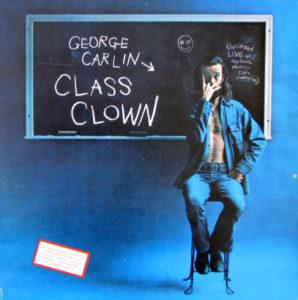I grew up listening to George Carlin’s records—FM&AM, Class Clown, and Occupation: Foole in particular. From his “Hair” poem, which I can still recite from memory, to his infamous “Seven Dirty Words You Can Never
Say on TV,” he was funny, literate, subversive. He helped you see the world for the goofy place it really is. (Listen to this, which is Carlin at the height of his powers.)

At the time of this interview, in 1989, George Carlin was 52 years old, a 30-year veteran of standup comedy, and in the middle of yet another tour. He also had a role that year in the movie “Bill and Ted’s Excellent Adventure,” and in the subsequent TV show, “Bill and Ted’s Excellent Adventures.”
By this point in his career, Carlin was already considered one of the two or three greatest standup comics of all time. His credits included performing on the very first episode of “Saturday Night Live,” and his “Seven Dirty Words You Can Never Say on Television” routine had been part of a landmark U.S. Supreme Court decision on the use of obscene language.
Listening back to this conversation, what strikes me is how far ahead of his time when it comes to political commentary.
Some context for this conversation:
-I asked about a controversy regarding the comedian Jackie Mason. At the time, Mason was campaigning on behalf of Republican Rudy Giuliani, who was running for mayor of New York against Democrat David Dinkins. Mason was asked to leave the campaign after he was quoted in The Village Voice as saying that Jewish support for Dinkins was based on Jewish guilt about ”the black predicament” and that blacks had rarely supported Jewish causes.
-I asked about the Rolling Stones. At the time, the members of the Stones were pushing 50 and continuing to tour, which people like me (wrongly) thought was laughable. Thirty years later, the Stones are pushing 80 and continuing to tour.
Link to Marc Allan’s article written after the George Carlin interview.
To learn more about George Carlin, visit: https://georgecarlin.com/biography/